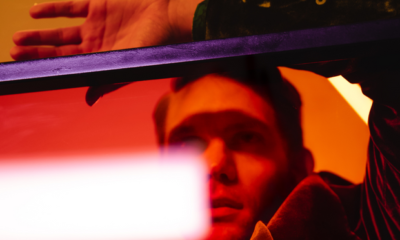Life
How to Think About Change and the Lessons It Teaches You

If you’d like to learn how to deal with change in your life so you can constantly adapt, sign up for the free 90-Day Master Class hosted by the founder of Addicted2Success.com, Joel Brown.
Change – What is it teaching us? Change is hard not just today, but every day. And change has the ability to feel even more difficult when it is “forced” upon us. Many of us are feeling more frustrated than we ever have at any point in our lives due to the daily conditions that now exist – from being forced to “shelter in place” to having to wear a mask to enter stores for essentials to not being able to have access to even the simplest of things that made us feel good – like getting a haircut.
Rewind to just after the New Year – many of us were ready to show our New Year Resolutions who was boss, jet off to the next travel destination on our must-see list and reach new professional goals. Some of us had just recovered from an injury or were finally courageous enough to begin a new venture. And now almost all of us feel blindsided, and quite frankly defeated at times.
But I ask you this – life can be like yoga – so just because a pose is getting hard – will you give up? Or will you channel restraint and resolve to hold the pose and dig deeper? Will you realize you are right where you are at for a reason and be bold enough to seek it?
“To exist is to change, to change is to mature, to mature is to go on creating oneself endlessly.” – Henri Bergson
We’re in a space in time where everything feels hard. From going to the grocery store to ordering essentials to navigating complex business deals – it’s hard right now to find the comfort we so desperately are seeking. Our ability to keep pushing forward is feeling diminished and our light within that burned bright is beginning to dwindle.
But consider this – just because where you are today isn’t where you thought you would be, it doesn’t mean you can’t or won’t get to your intended destination. It does mean however that it is time to course correct. The winds of change have blown all of us off course and now it’s time for a new plan.
In order to do this, we must manage our emotional and mental state with care. It is SO easy to get lost in a barrage of negative news, deeply emotional conversations with others and become overwhelmed by fear that seems to be everywhere we turn. Now is the time to cultivate an active practice of conditioning yourself with healthy perspective. The healthier your mind is and the more thoughtfully your emotions are managed, the better your decision ability will be to help you course correct.
Here are a couple quick changes you can make:
- Turn to news sources that you trust – get the facts – and then go on with your day. Do not listen to endless hours of media on end. This is a sure fire way to harm your mental state.
- Every morning when you get up – literally say “thank you, thank you, thank you” as the late great Wayne Dyer always did. This simple step literally sets your outlook instantly in a positive direction the moment your feet hit the floor.
- Feed your mind with uplifting podcasts, music, and books. Your mind is a muscle and what you feed it, it will magnify.
- Write three things that were positive in your day at the close of every day. This will help you celebrate even the smallest wins – maybe you washed your hair today for example. Sounds silly but right now even the smallest of things like caring for ourselves seems like a lot.
“Your life does not get better by chance, it gets better by change.” – Jim Rohn
So, it brings me back to my initial question – change, what is it teaching us? Maybe it is to understand that nothing ever is or ever was or ever will be permanent (and that is ok). Maybe it is teaching us to understand the beauty of growing through things that are stretching us to our limits. Maybe the lesson is to have more grace and empathy for others and ourselves. Or, maybe we are supposed to understand that there will always be more than one way to get to an intended goal or destination.
For thousands of years, change has looked much like a foe – an enemy that must be defeated by a resolve to remain the same. But what if, finally, we concede that we’ve had it all wrong. That change is necessary for all of mankind to continue thriving, no matter how uncomfortable it may be.
What if 2020 with all of its pain points, disappointments, and frustrations has been the shake-up that was essential for all us to achieve new levels of success? It may be time to accept that change is not a foe, but rather a long lost friend that has finally made its way back to us looking to guide, protect and elevate us.
How do you deal with change? Share any strategies or thoughts you have on change below!
Did You Know
How Skilled Migrants Are Building Successful Careers After Moving Countries
Behind every successful skilled migrant career is a mix of resilience, strategy, and navigating systems built for locals.

Moving to a new country for work is exciting, but it can also be unnerving. Skilled migrants leave behind familiar systems, networks, and support to pursue better job opportunities and a better future for their families. (more…)
Life
10 Research-Backed Steps to Create Real Change This New Year
This New Year could finally be the one where you break old patterns and create real, lasting change.

Every New Year, we make plans and set goals, but often repeat old patterns. (more…)
Life
9 Harsh Truths Every Young Man Must Face to Succeed in the Modern World
Before chasing success, every young man needs to face these 9 brutal realities shaping masculinity in the modern world.

Many young men today quietly battle depression, loneliness, and a sense of confusion about who they’re meant to be.
Some blame the lack of deep friendships or romantic relationships. Others feel lost in a digital world that often labels traditional masculinity as “toxic.”
But the truth is this: becoming a man in the modern age takes more than just surviving. It takes resilience, direction, and a willingness to grow even when no one’s watching.
Success doesn’t arrive by accident or luck. It’s built on discipline, sacrifice, and consistency.
Here are 9 harsh truths every young man should know if he wants to thrive, not just survive, in the digital age.
1. Never Use Your Illness as an Excuse
As Dr. Jordan B. Peterson often says, successful people don’t complain; they act.
Your illness, hardship, or struggle shouldn’t define your limits; it should define your motivation. Rest when you must, but always get back up and keep building your dreams. Motivation doesn’t appear magically. It comes after you take action.
Here are five key lessons I’ve learned from Dr. Peterson:
-
Learn to write clearly; clarity of thought makes you dangerous.
-
Read quality literature in your free time.
-
Nurture a strong relationship with your family.
-
Share your ideas publicly; your voice matters.
-
Become a “monster”, powerful, but disciplined enough to control it.
The best leaders and thinkers are grounded. They welcome criticism, adapt quickly, and keep moving forward no matter what.
2. You Can’t Please Everyone And That’s Okay
You don’t need a crowd of people to feel fulfilled. You need a few friends who genuinely accept you for who you are.
If your circle doesn’t bring out your best, it’s okay to walk away. Solitude can be a powerful teacher. It gives you space to understand what you truly want from life. Remember, successful men aren’t people-pleasers; they’re purpose-driven.
3. You Can Control the Process, Not the Outcome
Especially in creative work, writing, business, or content creation, you control effort, not results.
You might publish two articles a day, but you can’t dictate which one will go viral. Focus on mastery, not metrics. Many great writers toiled for years in obscurity before anyone noticed them. Rejection, criticism, and indifference are all part of the path.
The best creators focus on storytelling, not applause.
4. Rejection Is Never Personal
Rejection doesn’t mean you’re unworthy. It simply means your offer, idea, or timing didn’t align.
Every successful person has faced rejection repeatedly. What separates them is persistence and perspective. They see rejection as feedback, not failure. The faster you learn that truth, the faster you’ll grow.
5. Women Value Comfort and Security
Understanding women requires maturity and empathy.
Through books, lectures, and personal growth, I’ve learned that most women desire a man who is grounded, intelligent, confident, emotionally stable, and consistent. Some want humor, others intellect, but nearly all want to feel safe and supported.
Instead of chasing attention, work on self-improvement. Build competence and confidence, and the rest will follow naturally.
6. There’s No Such Thing as Failure, Only Lessons
A powerful lesson from Neuro-Linguistic Programming: failure only exists when you stop trying.
Every mistake brings data. Every setback builds wisdom. The most successful men aren’t fearless. They’ve simply learned to act despite fear.
Be proud of your scars. They’re proof you were brave enough to try.
7. Public Speaking Is an Art Form
Public speaking is one of the most valuable and underrated skills a man can master.
It’s not about perfection; it’s about connection. The best speakers tell stories, inspire confidence, and make people feel seen. They research deeply, speak honestly, and practice relentlessly.
If you can speak well, you can lead, sell, teach, and inspire. Start small, practice at work, in class, or even in front of a mirror, and watch your confidence skyrocket.
8. Teaching Is Leadership in Disguise
Great teachers are not just knowledgeable. They’re brave, compassionate, and disciplined.
Teaching forces you to articulate what you know, and in doing so, you master it at a deeper level. Whether you’re mentoring a peer, leading a team, or sharing insights online, teaching refines your purpose.
Lifelong learners become lifelong leaders.
9. Study Human Nature to Achieve Your Dreams
One of the toughest lessons to accept: most people are self-interested.
That’s not cynicism, it’s human nature. Understanding this helps you navigate relationships, business, and communication more effectively.
Everyone has a darker side, but successful people learn to channel theirs productively into discipline, creativity, and drive.
Psychology isn’t just theory; it’s a toolkit. Learn how people think, act, and decide, and you’ll know how to lead them, influence them, and even understand yourself better.
Final Thoughts
The digital age offers endless opportunities, but only to those who are willing to take responsibility, confront discomfort, and keep improving.
Becoming a man today means embracing the hard truths most avoid.
Because at the end of the day, success isn’t about luck. It’s about who you become when life tests you the most.
Change Your Mindset
The Four Types of Happiness: Which One Are You Living In?
Most people chase success only to find emptiness, this model reveals why true happiness lies somewhere else.

In a world driven by rapid technological growth and constant competition, many people unknowingly trade joy for achievement. (more…)
-

 News3 weeks ago
News3 weeks agoBrandon Willington Builds 7-Figure Business by Ignoring Almost Everything
-

 Health & Fitness4 weeks ago
Health & Fitness4 weeks agoWhat Minimalism Actually Means for Your Wellness Choices
-

 Did You Know4 weeks ago
Did You Know4 weeks agoWhy Most Online Courses Fail and How to Fix Them
-

 Business4 weeks ago
Business4 weeks agoIf Your Business Internet Keeps Letting You Down, Read This
-

 Business2 weeks ago
Business2 weeks agoEntrepreneur’s Guide to Pay Stubs: Why Freelancers and Small Business Owners Need a Smart Generator
-

 Business2 weeks ago
Business2 weeks agoThe Salary Shift Giving UK Employers An Unexpected Edge
-

 Scale Your Business2 weeks ago
Scale Your Business2 weeks ago5 Real Ways to Grow Your User Base Fast
-

 Business2 weeks ago
Business2 weeks agoThe Simple Security Stack Every Online Business Needs





























